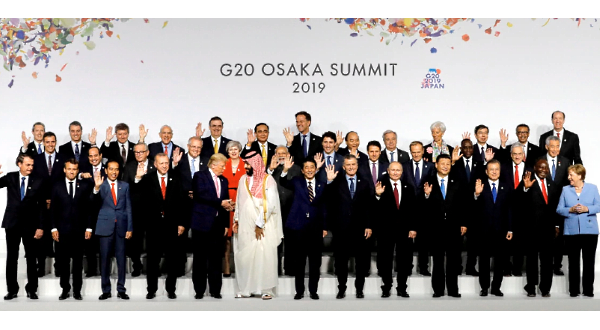Ahead of two important meetings of rich country governments this week, climate activists all over the world are mobilising online and offline to call for a just recovery.

National governments and central banks representatives at the European Council on July 16-17 and the G20 Finance Ministers and Central Bankers meeting on July 18 are discussing sweeping measures to tackle the economic recession caused by the covid-19 pandemic.
Trillions of dollars are being put on the table as the EU prepares to approve a €750 billion Recovery Fund and G20 countries are each deploying hundreds of billions in public money to soften the blow of the recession.
New research carried out by the International Institute for Sustainable Development (IISD) and other 14 partners confirms that, throughout the pandemic, G20 countries have already handed over or earmarked over $150 billion for fossil fuels and other polluting industries.
A broad coalition of climate activists, trade unions, economists, and advocates for social, gender and racial justice is calling instead for recovery plans to include strong decarbonization, equity and justice elements.
“This is a choice point for rich governments and central bankers. The economic recession calls for an unprecedented mobilisation of public resources – they have a chance to put that money, our money, to good use by accelerating a deep decarbonisation of our economies, creating millions of decent and clean jobs, and finally addressing the social and racial injustices that keep breaking the social contract and that are further exacerbated by the covid-19 pandemic and a worsening climate crisis” said May Boeve, Executive Director at 350.org.
“The decisions they take now will shape our world for decades to come. Will these ministers and central bank governors go down in history as the leaders who finally stepped up to deliver a truly just recovery or as the people whose statues will be toppled a few decades from now because they did everything wrong?”
Some of the actions planned by activists for the week include:
- A banner display in Satkhira, on the coast of cyclone-hit Bangladesh, to protest against G20 countries’ continued financing of fossil fuel projects abroad, including in the UNESCO heritage site of the Sundarbans mangrove forest.
- Banner drops in several South African cities and the release of a 34-page report on a “Just Recovery for South Africa”.
- Local activists in Porto Alegre, Brazil projected a call to end coal funding and to support a Just Recovery in two different locations in the city
- A Twitterstorm and a global petition, targeting Finance ministers and Central bank Governors.
- An open letter signed by the heads of prominent civil society organisations, including 350.org, Action Aid, CAN International, Greenpeace International, Oxfam International, the Global Call to Action Against Poverty (GCAP) and JubileeDebt.
“The online and offline actions are just the beginning of a longer-term campaign for a Just Recovery from the covid-19 pandemic that put us on the path of transforming our energy systems and addressing the climate crisis equitably.
“That includes: facilitating a managed decline of the fossil fuel industry; supporting the creation of millions of decent and clean jobs by investing in renewable energy and the decarbonisation of our transport, building and agriculture sectors; canceling the sovereign debt of poor countries; rebuilding and re-thinking social services, healthcare and education to dismantle racial injustice and put an end to social exclusion,” said Boeve.
“G20 countries are spending hundreds of billions of dollars on more fossil fuels, even though the pandemic. Despite their promises and international commitments, they also continue to fund coal, oil and gas overseas, at the same time as they keep poorer countries in a debt chokehold” said Jannatul Mouwa, of Bangladesh-based organisation Bindu, one of the organisers of the protest in Satkhira.
“A country like Bangladesh has had zero responsibility in creating the climate crisis and has few resources to deal with the pandemic on top of the climate crisis. The decisions taken by rich governments in the G20 have a direct impact on our communities.
“Our homes are destroyed by cyclones, our lungs are poisoned with the pollution from the coal plants they financed. We need them to cancel all debt and stop fueling the climate crisis. Now it’s the time to go beyond empty words and truly act in solidarity and stewardship to the Earth and all humankind,” added Mouwa.
